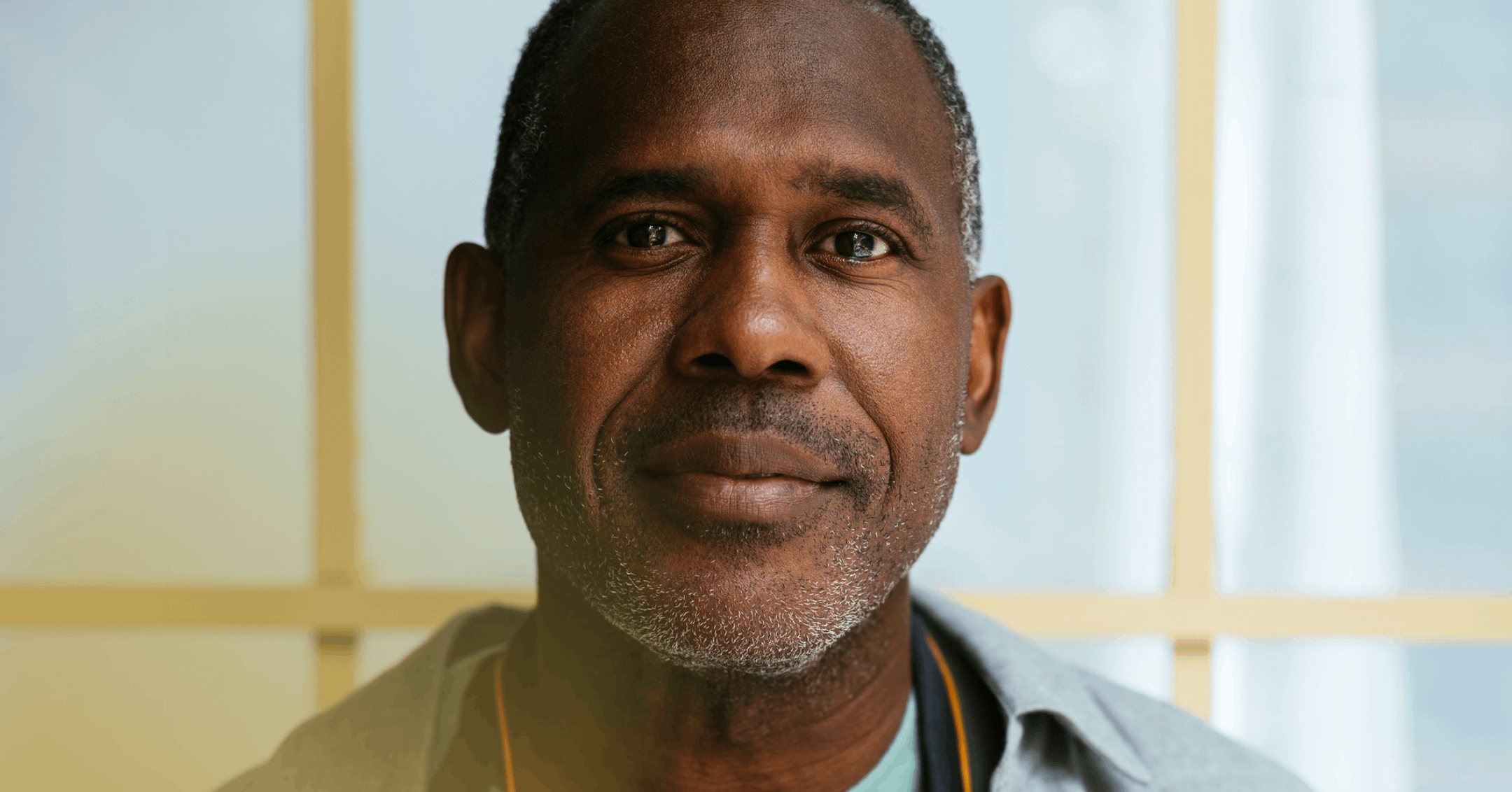Men face mental health challenges just like women, but they often suffer in silence due to stigma and societal pressure.
Seeking help and talking about emotions can improve mental well-being, build stronger relationships, and reduce stress.
There are many resources available for men, like therapy and support groups to help manage mental health.
Men’s mental health is often overlooked, but it shouldn’t be. Talking about emotions isn’t always easy — especially for men. Society often teaches men to “tough it out” instead of seeking help. This mindset can take a serious toll. Every year, six million men in the U.S. experience depression, and men are two to three times more likely to deal with unhealthy substance use than women.
Yet men are far less likely to seek therapy. With men dying by suicide* at four times the rate of women, it’s clear that breaking the stigma and reaching out for support is critical.
The good news? Opening up about emotions only makes you stronger. Being vulnerable can improve mental well-being, strengthen relationships, and even boost resilience. If you’ve ever struggled in silence, you’re not alone. Let’s talk about how breaking the stigma can lead to a healthier, happier life.
*The 988 Suicide and Crisis Lifeline provides 24/7, confidential support with trained crisis counselors. If you or a loved one is in emotional distress or a suicidal crisis, please call or text 988. If you’re experiencing a life-threatening emergency or you need immediate help, please call 911.
Men’s mental health matters
Men’s mental health is still overlooked and not talked about nearly enough. Even today, it’s common to hear people question why mental health matters at all. For generations, men have been expected to be strong, independent, and self-reliant — often at the cost of their emotional well-being.
Many boys grow up being told to “man up” or hide their feelings, which can make it hard to open up later in life. This pressure to appear tough can lead many men to bottle up their emotions instead of seeking help.
But mental health is just as important as physical health, and ignoring it doesn’t make struggles disappear. The good news is that more men are starting to break the cycle, proving that strength comes from facing challenges — not avoiding them.
The care you need, when you need it
Learn how Rula can support your mental health journey
Men struggle with mental health just as much as women
Some people believe that mental health issues affect women more than men, but the truth is that men struggle just as often. The difference is that many men are less likely to open up about it.
Conditions like depression, anxiety, and substance use disorders are common among men, but they often go undiagnosed because of stigma. Recognizing the signs and seeking help early can make a huge difference.
The reality of men’s mental health
Mental health challenges don’t discriminate — they affect men just as much as anyone else. The problem is that men often suffer in silence.
Here’s what the statistics and data show:
Most men go untreated. Research shows that about one in five men experience a mental health condition each year in the U.S., yet many never receive treatment.
Depression often looks different in men. Depression in men often goes undiagnosed because symptoms can show up as anger, irritability, or fatigue rather than sadness.
More men die by suicide. Suicide rates among men are four times higher than in women, yet men are far less likely to seek help.
Men with substance use disorders avoid treatment. Many hesitate to seek help due to fear of being judged or appearing weak.
Eating disorders affect men too. Though often seen as a women’s issue, one in three people with an eating disorder is male, yet men are less likely to be diagnosed.
Men can experience postpartum depression. New fathers can experience postpartum depression (PPD) due to hormonal changes, stress, and lack of support, but it often goes unrecognized.
Anxiety and PTSD are common in men. Men (especially veterans and first responders) face high rates of anxiety and post-traumatic stress disorder (PTSD), but stigma often prevents them from seeking care.
The impact of untreated mental health issues
Ignoring mental health issues doesn’t make them go away. In fact, it can make things worse. When men don’t get support, it can affect every part of their lives.
For example:
Suicide risk increases. Men account for nearly 80% of all suicides, and untreated mental health issues are a major factor in this alarming statistic.
Substance use becomes a coping mechanism. Many men turn to alcohol or drugs to numb emotional pain, which can lead to further mental and physical health issues.
Relationships suffer. When mental health issues are left unaddressed, they can create tension, misunderstandings, and distance in relationships.
Physical health declines. Mental health conditions can contribute to serious physical health problems — including heart disease, high blood pressure, and chronic stress — making it even more important to seek help.
More men are going to therapy than ever
For years, the idea that “real men don’t go to therapy” kept many from seeking help. But that’s changing. More men than ever are turning to therapy as a way to manage stress, improve relationships, and take control of their mental well-being. Therapy provides tools to navigate life’s challenges, but support doesn’t have to start or stop there.
Talking to trusted friends, family members, or mentors about what you’re going through can make a huge difference. Opening up doesn’t mean you have to have all the answers — it just means you’re willing to share the weight. Whether it’s having a conversation with a close friend, checking in with a partner, or joining a support group, connection is key. Recognizing when you need support and reaching out — whether to a therapist or someone in your circle — is one of the strongest things you can do.
Being vulnerable doesn’t make you less of a man
It takes real courage to be honest about your struggles. While many men are taught to push through tough times alone, opening up can actually make you stronger — not weaker.
How emotional vulnerability improves men’s mental health
Many men grow up hearing that they should always be strong and keep their feelings to themselves. But ignoring emotions doesn’t make them go away. It can lead to more stress and create distance in relationships. Being open about struggles can have lasting benefits.
Talking about emotions helps reduce stress and anxiety. Keeping everything bottled up can make things worse over time.
Being open strengthens relationships. Whether it’s with a partner, friend, or family member, honesty builds trust and deeper connections.
Expressing emotions can boost resilience. Facing struggles head on and asking for help can make you stronger in the long run.
What resources are available for men’s mental health?
If you or a man you care about is struggling, know that support is available. Reaching out isn’t a sign of weakness — it’s a step toward strength and healing. No one should have to navigate mental health challenges alone, and the right resources can make a big difference.
Therapy and counseling: A mental health professional can help you work through stress, anxiety, or depression with strategies that fit your needs and lifestyle. Many therapists specialize in men’s mental health and understand the unique challenges men face.
Support groups: Connecting with other men who understand what you’re going through can help reduce feelings of isolation and provide encouragement.
Online platforms and hotlines: If reaching out in person feels overwhelming, anonymous support is available through crisis hotlines, mental health apps, and online therapy platforms.
Self-care and healthy habits: Mental health isn’t just about what’s in your head. It’s also about how you take care of your body. Regular exercise, good sleep, time for hobbies, and meaningful social connections all play a huge role in managing stress and improving well-being.
You don’t have to handle everything on your own. Whether it’s going to therapy, talking to a trusted friend, or making small changes to your routine, taking action today can help you feel better and stronger tomorrow.
A lot of men I’ve worked with say they were taught to hide their feelings, so opening up in therapy felt weak or risky at first. That stigma can make it really hard to ask for help.

Brandy Chalmers, LPC
Clinical reviewer
Find care with Rula
Men’s mental health is often overlooked, but it’s just as important as physical health. Many men face conditions like depression, anxiety, and other mental health conditions but may hesitate to seek help due to stigma. Opening up only makes you stronger. There are resources available, from therapy to support groups, that can help men manage their mental health and lead healthier lives. If you’re struggling, reaching out for support is a courageous step toward healing.
At Rula, we’re committed to delivering a comprehensive behavioral health experience that helps people feel seen and understood so they can get back to feeling their best.
Rula makes it easier to find a licensed therapist or psychiatric provider who accepts your insurance so you don’t have to choose between affordable care and excellent care. With a diverse network of more than 15,000 providers, 24/7 crisis support, and appointments available as soon as tomorrow, we’re here to help you make progress — wherever you are on your mental health journey.
Rula's editorial process
Rula's editorial team is on a mission to make science-backed mental health insights accessible and practical for every person seeking to better understand or improve mental wellness.
Members of Rula’s clinical leadership team and other expert providers contribute to all published content, offering guidance on themes and insights based on their firsthand experience in the field. Every piece of content is thoroughly reviewed by a clinician before publishing.



